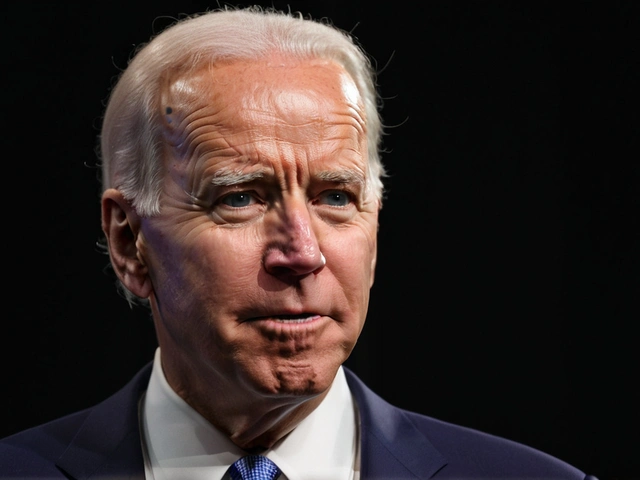Paula Vennells Ignored Crucial Review for Fear of Front-Page Headlines
In a gripping revelation on the second day of the public inquiry into the Horizon scandal, Paula Vennells, the former CEO of the Post Office, admitted that her refusal to instigate a review over a decade ago could have averted substantial turmoil for numerous branch operators. Her decision, which has since drawn significant scrutiny, reportedly prioritized managing media narratives over addressing fundamental issues within the Horizon system, a decision she now recognizes as improper.
During her tenure, Vennells faced mounting evidence of serious flaws within the Horizon computer system, which was central to the scandal. Numerous branch operators were accused of false accounting and suffered severe personal and professional setbacks as a result. Acknowledging her role in this 'lost decade,' Vennells admitted that had she ordered a review at the time, many of these hardships could have been avoided.
Understanding the Horizon Scandal
The Horizon scandal is a grim chapter in the recent history of the UK Post Office. Operators of local post offices were accused of criminal activities like false accounting and fraud. These accusations were based largely on data generated by the Horizon system, a computer system that was supposed to track all transactions accurately. However, as it later emerged, the system was far from foolproof. Numerous bugs and glitches within Horizon led to significant, yet undetected, accounting discrepancies, which were unfairly blamed on the operators.
This flawed system led to over 500 post office operators being falsely accused, marking a dark period of intense legal battles, financial ruin, and immeasurable emotional distress for those involved. Yet, despite knowing about these issues, the Post Office, under Vennells' leadership, chose not to disclose vital information to relevant authorities, like the Criminal Cases Review Commission (CCRC), significantly delaying justice.
A Missed Opportunity for Transparency
During her testimony, Vennells acknowledged being aware of the unreliable nature of a key witness, Gareth Jenkins, and the existence of bugs in the Horizon system. Despite these concerns, she refrained from launching a full historical review of the cases, instead deciding to manage the situation more discreetly. Vennells' communications head, Mark Davies, advised against a review, warning that it would only 'fuel the story' and draw unwanted media attention, making it 'mainstream' and 'very high-profile.' This advice seems to have swayed Vennells, leading her to prioritize controlling the media narrative over seeking the truth.
In hindsight, Vennells acknowledged that this decision was wrong and that the Post Office should have been forthcoming with their doubts about the evidence provided by Jenkins to the CCRC, which could have potentially sped up the resolution of these cases.
The Role of the Media and Public Opinion
Mark Davies' advice to Vennells underscores a significant aspect of corporate governance and crisis management: the role of media and public perception. During times of crisis, companies often face the dilemma of addressing root causes versus managing how they are projected publicly. In this instance, the choice to focus on media management backfired spectacularly, resulting in long-term damage to the Post Office's reputation and untold suffering for innocent individuals.
The inquiry is now shedding light on these decisions and the priorities that directed them, promising to deliver justice and clarity to all affected. It serves as a reminder of the importance of transparency and accountability in corporate practices.

Consequences and Reactions
The repercussions of Vennells' choices are far-reaching. Hundreds of branch operators who were ostracized and financially ruined for crimes they didn't commit are still grappling with the fallout. The disclosure of these administrative decisions has fueled public outrage and calls for more stringent oversight and accountability within major institutions.
Lawmakers and advocates are demanding systemic changes to prevent such miscarriages of justice in the future. They argue that the Horizon scandal exemplifies the dangers of unchecked corporate control and the critical need for transparency and ethical leadership. Moving forward, the Post Office is likely to face mounting pressure to implement reforms and restore public trust.
The Path to Redemption
For the Post Office and its former leadership, apologies and acknowledgments are just the beginning. The path to redemption lies in initiating substantial changes that ensure such a scandal is never repeated. This includes comprehensive overhauls to their auditing processes, more rigorous checks on technological systems, and a commitment to greater transparency with both the public and regulatory bodies.
Moreover, affected post office operators need to see tangible reparations. This is not solely about financial compensation but also about restoring their dignity and providing closure for the injustices they faced. The inquiry's findings will be instrumental in shaping the future policies of the Post Office, emphasizing the necessity of ethical conduct, accountability, and the prioritization of human lives over corporate interests.
As the inquiry continues to unfold, it promises to reveal further insights into the decisions and actions that led to this debacle. For now, one thing is clear: the Horizon scandal serves as a sobering lesson on the profound impact of corporate decisions and the importance of placing integrity at the heart of organizational leadership.






This is wild. Just imagine being blamed for money missing because a computer glitched.
No one deserves that.
Oh wow, so the CEO was more scared of a front-page headline than of ruining hundreds of lives? Classic.
Like, what’s the point of running an institution if you’re just playing PR whack-a-mole? 🙄
People like her should be in jail. Not just fired. Jailed.
She chose headlines over justice. That’s not a mistake. That’s evil.
I can’t even breathe right now.
These were grandmas and grandpas trying to run a post office, not tech geniuses.
And the company let them rot in prison because of a BUG?
I’m crying. I’m so angry. This isn’t just corruption. This is a crime against humanity.
Honestly the whole thing is overblown. People just need to stop being so sensitive. The system had bugs, sure. But how many times have you seen a bank system glitch and blamed the teller?
These folks were just unlucky. And now they want reparations? Get real.
I wonder how many other systems like Horizon are out there.
What if the same thing happened in healthcare records? Or unemployment benefits?
Are we just waiting for the next scandal to blow up before we fix anything?
It’s not just about the Post Office. It’s about how we trust institutions that don’t trust us.
The failure here is not technical. It’s moral.
Leadership is not about managing optics. It’s about doing what’s right, even when it’s inconvenient.
Ms. Vennells failed. Spectacularly.
I KNEW IT. I TOLD YOU ALL. This is how the elite operate. They hide behind spreadsheets and corporate jargon while real people suffer.
They’re probably laughing right now in their penthouses, sipping champagne, thinking ‘oh those poor souls, how quaint.’
THIS IS A SYSTEMIC PLOT. THE GOVERNMENT IS IN ON IT.
Wait so the CEO was warned about the bugs but didnt do anything because the media would make a fuss??
thats not just stupid thats like.. evil.
and the guy who said dont do the review?? he should be fired and then sued and then thrown in a pit with spiders.
also i think the post office is run by aliens. i mean why else would they let this happen??